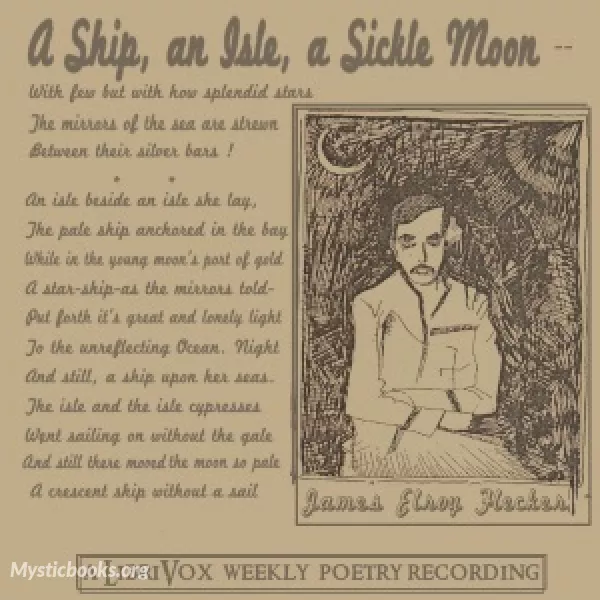
A Ship, an Isle, a Sickle Moon
'A Ship, an Isle, a Sickle Moon' Summary
James Elroy Flecker's "A Ship, an Isle, a Sickle Moon" is a short but powerful poem that explores the nature of reality, time, and imagination. The poem begins with a simple image: a ship, an isle, and a sickle moon. But as the poem unfolds, this image becomes increasingly symbolic, suggesting the fragility of life, the impermanence of all things, and the beauty of the natural world.
The poem's first stanza introduces the three central images:
A ship, an isle, a sickle moon—
With few but with how splendid stars
The mirrors of the sea are strewn
Between their silver bars!
The ship represents the journey of life, the isle represents the poet's own imagination, and the sickle moon represents the passing of time. The stars in the sea mirror the stars in the sky, suggesting the interconnectedness of all things.
In the second stanza, the poet begins to explore the symbolic meaning of the images:
An isle beside an isle she lay,
The pale ship anchored in the bay,
While in the young moon's port of gold
A star-ship—as the mirrors told—
Put forth its great and lonely light
to the unreflecting Ocean, Night.
The two isles represent the poet's imagination and the real world. The ship is anchored in the bay, suggesting that the poet's imagination is grounded in reality. But the star-ship in the young moon's port of gold suggests that the poet's imagination is also capable of soaring beyond the limits of the real world.
The third stanza explores the relationship between the poet's imagination and the passing of time:
And still, a ship upon her seas,
The isle and the island cypresses
Went sailing on without the gale:
And still there moved the moon so pale,
A crescent ship without a sail!
The ship and the isle are still sailing on, even though there is no wind. This suggests that the poet's imagination is always active, even when he is not consciously engaged in creating poetry. The moon is now a crescent, suggesting that even the most beautiful and enduring things are subject to the passage of time.
The poem's final stanza is a meditation on the fragility of life and the beauty of the natural world:
Like to the bending of a bow
The isle was curved, and then so low
The ship appeared that she was gone
Into the night, and yet, did on
Sail, like the moon, with never a stay,
On through the night and through the day.
The isle is curved like a bow, suggesting the fragility of life. The ship disappears into the night, suggesting the inevitability of death. But the ship also sails on, like the moon, suggesting that even in death, the soul continues to journey on.
Flecker's poem is a beautiful and moving meditation on the nature of reality, time, and imagination. It is a poem that can be read on many levels, and it is a poem that will stay with you long after you have finished reading it.
Book Details
Authors
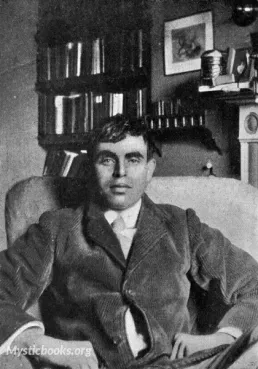
James Elroy Flecker
United Kingdom
James Elroy Flecker was a British novelist, playwright, and poet who lived from 5 November 1884 to 3 January 1915. He was born in Lewisham, London, and educated at Dean Close School, Cheltenham, and T...
Books by James Elroy FleckerDownload eBooks
Listen/Download Audiobook
- Select Speed
Related books

She sweeps with many-colored Brooms by Emily Dickinson
Emily Dickinson's 'She sweeps with many-colored Brooms' is a collection of poems that explore the themes of nature, death, and immortality. Written in...
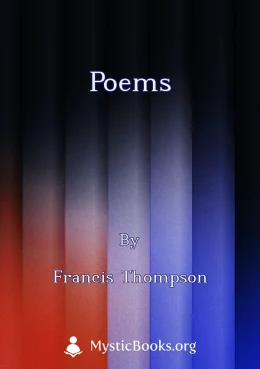
Poems by Francis Thompson
This volume compiles the poems of Francis Thompson, a Victorian poet known for his profound exploration of spirituality and the human condition. He em...
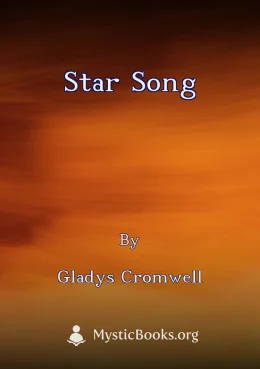
Star Song by Gladys Cromwell
Star Song is a collection of poems by Gladys Cromwell, a young poet who tragically ended her life with her twin sister after witnessing the horrors of...

For Eager Lovers by Genevieve Taggard
Genevieve Taggard was an American poet, teacher and socialist. This collection was first published in 1922 and deals with topics such as personal rela...
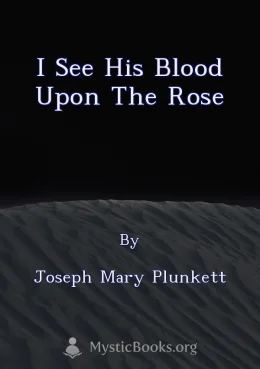
I see His Blood upon the Rose by Joseph Mary Plunkett
LibriVox volunteers bring you 12 different recordings of I see His Blood upon the Rose by Joseph Mary Plunkett. This was the weekly poetry project for...
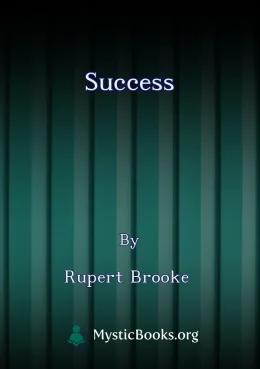
Success by Rupert Brooke
'Success' is a poem by Rupert Brooke that explores the themes of success, ambition, and the meaning of life. The poem is written in a free verse style...

In Remembrance by Arthur Macy
A tribute to friends both past and present, this poem is taken from Poems by Arthur Macy (1905).

Slabs of the Sunburnt West by Carl Sandburg
Thirty-two poems about life in the American Midwest, focusing on the city of Chicago, Illinois.

Comfort in the Night by Jean Ingelow
“Comfort in the Night” is a collection of poems by Jean Ingelow, known for their lyrical beauty and exploration of themes like love, loss, and the sol...
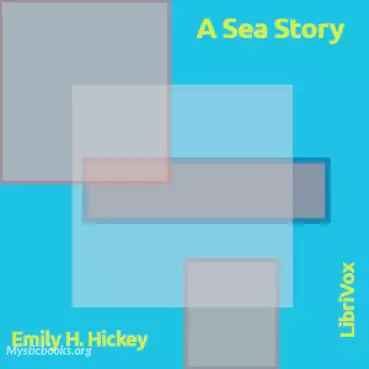
A Sea Story by Emily Henrietta Hickey
This Irish author, narrative poet and translator is new to our catalog. In this poem, she tells a sad tale of a shipwreck and the agonizing choice of...
Reviews for A Ship, an Isle, a Sickle Moon
No reviews posted or approved, yet...